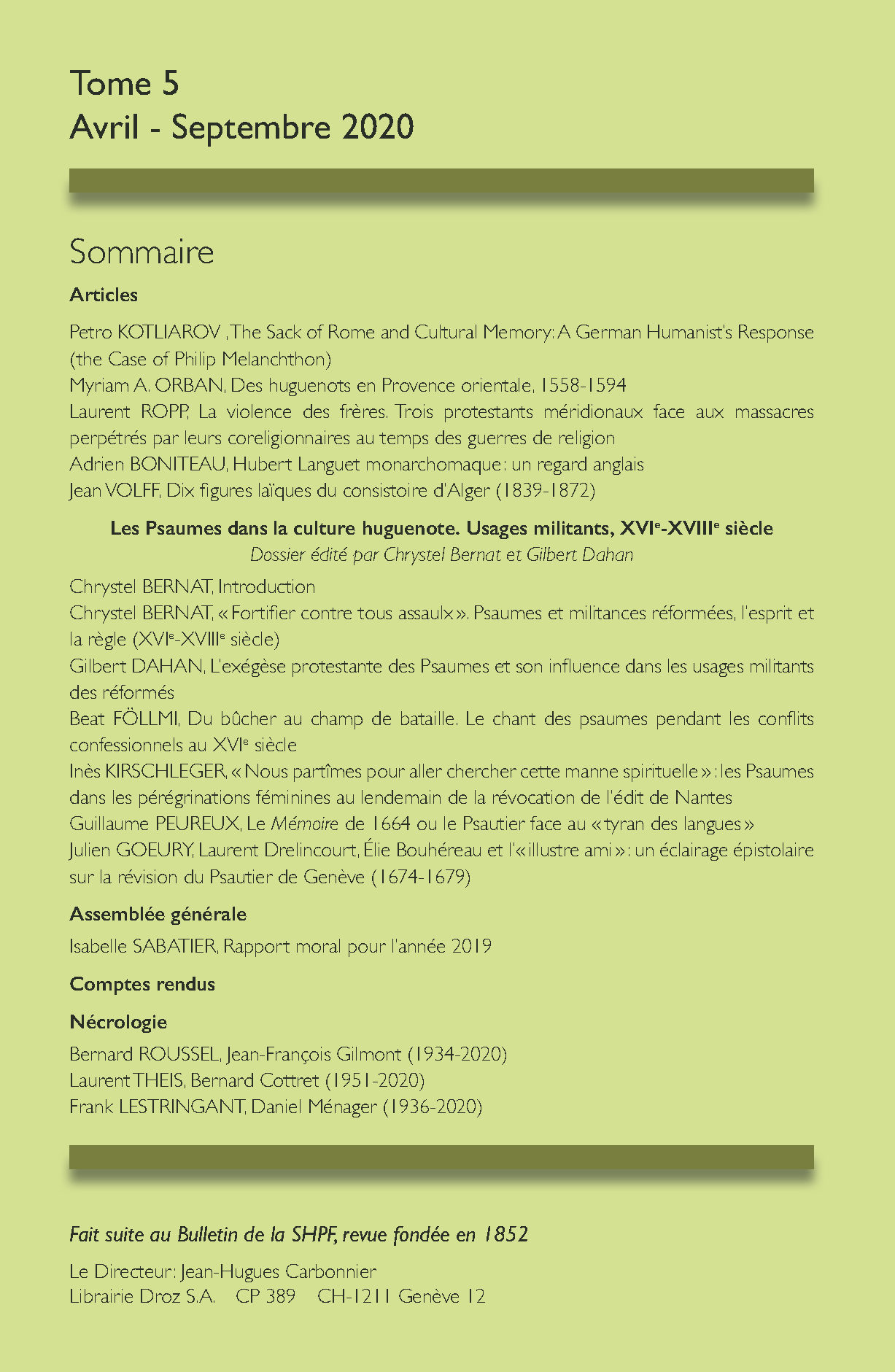Du bûcher au champ de bataille
Le chant des psaumes pendant les conflits confessionnels au XVIe siècle
Abstract
In the nineteenth century, the militant use of the Genevan Psalter became a key component of French historiography. Theodore Beza’s famous rhyming of Psalm 68 (“May God only show”), also known as the “Battle Psalm of the Reformation”, even came to be called the “Huguenot national anthem” (marseillaise huguenote ; Orentin Douen). Nevertheless, a critical study of the sources shows that historiographically verifiable evidence for the militant use of Psalm-singing is in fact very rare for the sixteenth century. This article traces the Sitz im Leben of militant Psalm-singing, from the Psalms sung individually by the first martyrs to the collective chanteries of the 1560s. It then examines the Psalms to which the historiographical apologetic has attributed a militant use. Analysing textual aspects, musical difficulties, and the use for Psalms proposed in the arguments of the Psalters, it concludes that only three Psalms could actually have been used during the military conflicts of the sixteenth century.
How to Cite
More Citation Formats
Issue
